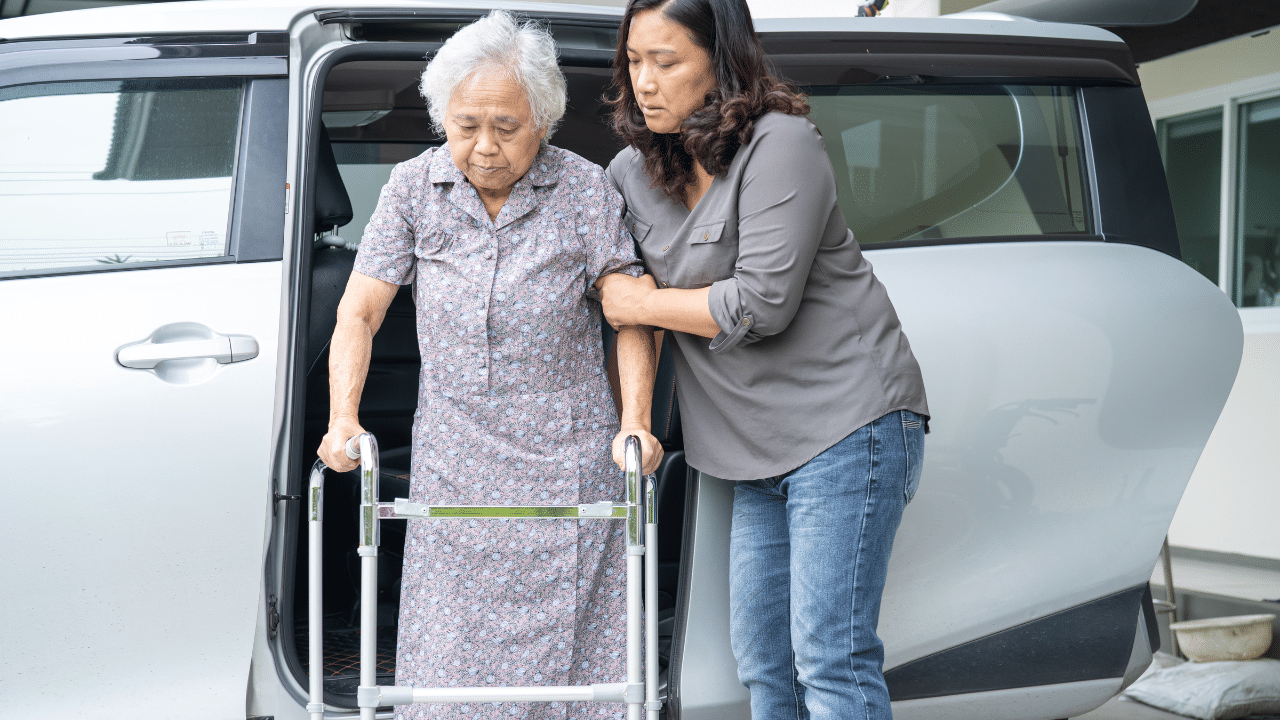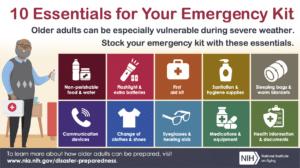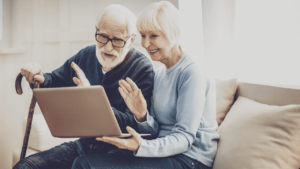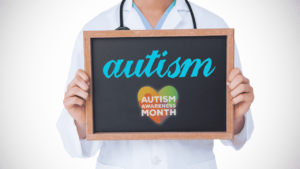As I write this, wildfires and windstorms are ravaging parts of Los Angeles. Having grown up not far from these areas, I’ve been deeply moved by the stories of resilience and support within communities, especially among people looking out for their neighbors and older adults.
Stories like this one highlight how vital it is to prepare for emergencies, check on neighbors, and ensure that older adults have the support they need to stay safe. These events inspired me to compile a list of resources and tips for helping older adults prepare for disasters.
Emergency preparedness is essential, especially for older adults who may have unique needs during disasters. Whether it’s mobility challenges, medical requirements, or access to essential supplies, preparation can make all the difference.
According to Ready.gov, there are four critical steps to being prepared:
Your 4 Steps to Preparedness
1. Have a Plan
Create an emergency plan tailored to your specific needs. This includes knowing evacuation routes, establishing communication plans with loved ones, and identifying safe shelters. Don’t forget to account for pets!
2. Keep Supplies
Stock up on essential items such as medications, non-perishable food, water, flashlights, batteries, and important documents. Keep these supplies in an easily accessible emergency kit, or a “go bag”.
3. Stay Informed
Stay updated on local news and weather alerts. Sign up for emergency notifications through your city or county’s alert system, and have a battery-powered radio as a backup.
4. Get Involved
Build a support network by connecting with neighbors, community organizations, and local emergency services. Knowing who you can rely on—and who might need your help—can save lives.
8 Credible Resources for Emergency Preparedness Designed for Older Adults
Here are trusted resources to help older adults prepare for emergencies:
- FEMA’s Disaster Preparedness Guide for Older Adults
This guide supports older adults and caregivers through a three-step process: assessing needs, creating a plan, and engaging support networks. - Ready.gov Older Adults Section
Offers tailored information to help older adults prepare for emergencies, including specific tips for various scenarios. - American Red Cross Disaster Preparedness for Seniors by Seniors
Created by older adults, this guide provides practical steps, tips, and tools for disaster preparedness. - National Institute on Aging’s Disaster Preparedness and Recovery for Older Adults
Guidance on planning for emergencies, whether staying at home or evacuating, and recovery assistance. - Administration for Community Living’s Emergency Preparedness Resources
Offers resources tailored for older adults and people with disabilities to stay prepared. - Health & Human Services Disaster Technical Assistance Center (DTAC) Older Adults Resource Collection
A collection of resources focusing on mental health and recovery support for older adults. - American Red Cross Emergency Preparedness for Older Adults
Tailored guidelines for older adults to navigate emergency situations safely. - AgeOptions Emergency Preparedness Web Page
Provides checklists, situation summaries, and resources to keep older adults, caregivers, and partner agencies informed about emergency alerts and preparedness.
Practical Tips for Supporting Older Adults During Emergencies
- Build a Support Network: Ensure that older adults have a list of trusted contacts who can assist during an emergency. Regularly check in on neighbors or family members who may need extra help.
- Plan for Health Needs: Include prescriptions, medical devices, and a list of medical conditions in emergency kits. If evacuation is required, ensure that mobility aids and assistive devices are ready to go.
- Practice the Plan: Conduct regular drills to ensure that everyone knows what to do and where to go during an emergency.
Final Thoughts
Preparing for disasters can feel overwhelming. By taking these steps, you can help ensure the safety and well-being of the older adults in your life. Remember, we are stronger when we prepare and support one another.
So, check on your neighbors. Offer to help them create a plan or gather supplies. Together, we can create safer, more resilient communities.
Sending you, your families, and your clients so much love.





